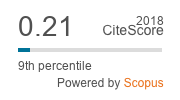Motivação Animal:
Da Equiliвração Clássica À Perspectiva Ecológica
Resumen
RESUMO - A idéia de equilibração, principalmente sob a forma de homeostase, teve enorme influência sobre a pesquisa è o pensamento acerca de motivação. Argumenta-se, aqui, que ela não constitui base suficiente para a formulação de uma teoria geral e que caberia, como mudança de ênfase, levar-se em conta as maneiras diversas como os processos motivacionais se ajustam a condições ambientais. O estudo do papel da experiência passada e da ontogênese em geral, dos efeitos de incentivo e de custo, a investigação de comportamentos ecologicamente relevantes, em várias espécies, são caminhos para enriquecer o esquema da análise motivacional do comportamento.
Descargas
Citas
FITZSIMMONS, J.T. (1972). Thirst. Physiological Review, 52, 468-561. FUCHS, H. (1978). Um estudo sobre o comportamento predatório e ingestivo da aranha Lycosa erythrognatha, Lucas, 1836. Tese de mestrado não publicada, apresentada ao Instituto de Psicologia, USP. GALEF, B.G. Jr. & WIGMORE, S.W. (1983). Transfer of information concerning distant foods: a laboratory investigation of the "information-centre" hypothesis. Animal Behaviour, 31, 748-758. GUERRA, R.F. & ADES, С (1983). Variáveis ecológicas no armazenamento de papel do hamster: efeitos, a curto e a longo prazo, da distância. Etologia: Anais do 1.° Encontro Paulista de Etologia (Resumo), Jaboticabal, São Paulo. HARLOW, H.F. (1953). Mice, monkeys, men and motives. Psychological Review, 60, 23-32. HINDE, R.A. & STEVENSON-HINDE, J. (Org.)(1973). Constraints on learning: limitations and predispositions. Londres: Academic. KANAREK, R.B. (1981). Some limitations of homeostatic explanations of feeding behavior. The Behavioral and Brain Sciences, 4, 584-585. KAUFMAN, L.W., & COLLIER, G. The economics of seed handling. The American Naturalist, 1 881, 11 7, 46-60. KISSILEF, H.R. (1973). Non-homeostatic controls of drinking. Em EPSTEIN, A.N., KISSILEF, H.R., & STELLAR, E. (Org.) Neuropsychology of thirst: New findings and advances in concepts. Washington: Winston. KRALY, F.S. (1984). Physiology of drinking eliciated by eating. Psychological Review, 90, 478-490. MARTIN, J.R. (1984). Tail-pinch induced eating: psychogenetic comparison of roman high-and low-avoidance rats. Physiology and Behavior, 33, 985-987. NOWLIS, G.H. & KESSEN, W. (1976). Human newborns differentiate concentra-tions of glucose and sucrose. Science, 191, 865-866. MROSOVSKY, M. & SHERRY, D.F. (1980). Animal anorexias. Science, 207, 837-842. OTTA, E. (1984). Alguns aspectos paradoxais do comportamento alimentar. Trabalho apresentado no simpósio "Aspectos curiosos do comportamento alimentar". Reunião Anual de Psicologia, Ribeirão Preto. PYKE, G.H. (1984). Optimal foraging theory: a critical review. Annual Review of Ecology and Systematics, 15, 523-575.
RIBEIRO, F.L & ADES, С (1975). Resumo mimeografado das aulas do curso de Etologia. XXVII.* Reunião Anual da SBPC, Belo Horizonte. RICHTER, CP. (1927). Animal behaviorand internal drives. The Quarterly Review of Biology, 2, 307-343. ROZIN, P., GRUSS, L, & BERK, F. (1979). The reversal of innate aversions: attempts to induce a preference of chili peppers in rats. Journal of Comparative and Physiological Psychology, 93, 1001-1014. SHERRY, D.F., MROSOVSKY, N.. & HOGAN, J.A. (1980). Weight loss and anorexia during incubation in birds. Journal of Comparative and Physiological Psychology, 94, 89-98. TOATES, F.M. (1981). Towards a real system theory of feeding. The Behavioral and Brain Sciences, 4, 592. TREIT, D., SPETCH, M.L, & DEUTSCH, J.A. (1983). Variety in the flavor of food enhances eating in the rat: a controlled demonstration. Physiology and Behavior, 30, 207-211. VOGT, M.B. & RUDY, J.W. (1984). Ontogenesis of learning: I. Variations in the rat's reflexive and learned responses to gustatory stimulation. Developmental Psychobiology, 17, 11-33. ZUCCOLOTO, F.S. (1984). Estudos de ha'bitos alimentares em Ceratitis capitata (Diptera, Tephritidae). Trabalho apresentado no simpósio "Aspectos curiosos do comportamento alimentar". Reunião Anual de Psicologia, Ribeirão Preto.



